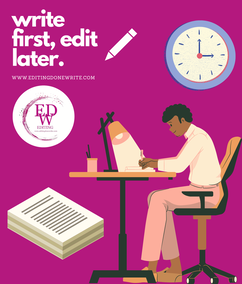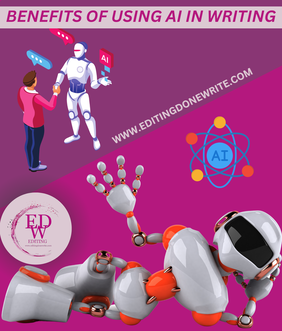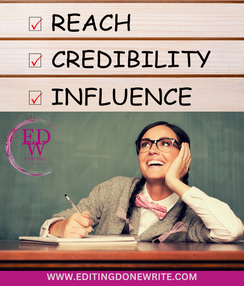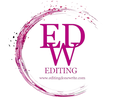 editing, writing, self-editing, time, authors, writers, books, publishing, schedules, advice, guidelines, create, revise, novel, professional, time management, first draft, improving your writing, how to, how to write effectively, how to write a book, creating a book editing, writing, self-editing, time, authors, writers, books, publishing, schedules, advice, guidelines, create, revise, novel, professional, time management, first draft, improving your writing, how to, how to write effectively, how to write a book, creating a book Writing is an art form that requires time and dedication. Whether you write professionally or as a hobby, writing can oftentimes be time-consuming and challenging. A common mistake that many writers make is trying to perfect their work as they go, picking at it so much that it takes forever to complete a finished first draft. First and foremost, remember that writing a first draft completely before editing allows you to focus on the creative process itself. Don't get hung up on the details. Give yourself permission to create, explore, and experiment with your ideas without nitpicking over the little things. Another reason to allow the first draft to flow is that it can help you maintain momentum and motivation. When you're constantly stopping and starting to revise and edit your work, it can be difficult to stay focused and maintain your momentum. (Are you always checking your phone or surfing the web, trying to jog your memory, and eventually just giving up for the day?) Reducing or eliminating interruptions altogether allows you to maintain a steady pace and get your ideas down on paper quickly and enables you to reach “The End” faster. Ever heard of analysis paralysis? I’ve heard it countless times. A writer has been working on their novel idea for YEARS. Chances are, they suffer from this condition in which they are so focused on perfecting their work that they're unable to move forward, leading to frustrating and decreased motivation, and, ultimately, may result in writer's block. All the more reason to stop picking and focus on keeping the creative flow going. Finally, saving the editing process for last can help you gain perspective on your work. It can be challenging to see the big picture and evaluate your work objectively when you're in the middle of writing. A good rule of thumb is to set aside your work for a couple of months and come back later with fresh eyes. But realistically, in the current publishing climate, readers demand more, now. So if you’re pressed for time, writing fluidly and returning to it after you’ve finished writing can go a long way in producing a similar effect, helping you identify areas that need improvement. At the end of the day, the best thing you can do for yourself is to focus on the process, not the outcome. Get into your story, the characters, the world you’re creating, and let the ideas and the words flow. I’m willing to bet when you come back later, you’ll ask yourself, “Did I really write this?” I’ve done it many times myself, and I bet when you try it, you’ll be impressed with what you’ve created. Trust in yourself! You can do it.
0 Comments
 AI, artificial intelligence, writing, applications of AI, authors, benefits of technology, using technology in writing, blogging, books, writers, writing, creating, ideas AI, artificial intelligence, writing, applications of AI, authors, benefits of technology, using technology in writing, blogging, books, writers, writing, creating, ideas I’m sure we’ve all heard something about AI in the news and around social media lately, and it’s bound to create a lot of confusion and strong feelings, no matter which side of the fence you fall on. If you’re like me, you’ve probably entertained some big ideas, like the Terminator coming to take out the world and some world-ending, apocalyptic visions all stemming from a computer program going rogue, and while I’m not saying that won’t happen (I do love me some fantasy!), I will say…wait a minute. What if AI isn’t here to commit global destruction? What if…and bear with me here… What if it can be used for good instead of evil? Let’s unpack this a bit, shall we? I’m sure you’ll agree with me that AI isn’t exactly new, and in the right hands, it could be a really handy tool with hundreds, if not thousands, of useful applications. Even now, writing this blog post, there is a certain amount of AI integrated into the system giving me suggestions on conciseness and correcting typos along the way. Without delving too deep into all of its potential applications, let’s focus on AI when applied to writing. And no, I’m not talking about some of those stories we’ve heard about so-called writers using this programming to do all the hard work for them. I’m talking about a tool that has the potential to help further your writing by taking it to the next level. Let’s check out some of the potential benefits of using AI.
While AI may never replace editing (I sure hope not!), one of the most basic and fundamental features of AI writing tools is their ability to identify and correct grammar and spelling errors in your writing. In fact, you’ve likely already used some tools to do just that. Grammarly, Hemingway, and ProWritingAid come to mind. Programs like these, while no substitute for the human eye and skill, can quickly and accurately detect many errors in your writing and provide suggestions for corrections. 2. Increased Efficiency As a writer, you know that the writing process can be a time-consuming and sometimes tedious task. However, AI tools have the potential to streamline your writing process and increase your efficiency. Just today, I was playing with one such tool and was able to create an outline using my ideas that I input into the task bar. Imagine, an outline for your next novel, all based on your original ideas, generated in a matter of moments! Again, it’s not foolproof and it’s hardly a polished result. There are many areas that a practiced eye can see more work needs to be done to produce a polished product, but it easily cut the time (and brain power) it would normally take in half. The same goes for other things you might need help with. Looking for a character name? Instead of combing baby name books and census records, ask AI. Need a unique name for some obscure fictional town? Ask AI! Even if you don’t use its suggestions, these can serve as jumping-off points that get your creative juices flowing. 3. Enhanced Creativity We all know that writing is often a tedious and solitary craft, and unless you have the incredible benefit of being a part of a writers group or a circle of friends you can bounce ideas off of, then you’re bound to hit the dreaded writer’s block a time or two (or ten!), and this is where AI can come in handy. With a few simple ideas and/or questions, AI can help you generate some fresh ideas. 4. Improved Research Let’s face it, you’ve spent a lot of time combing the internet for resources to help you get that scene just right. In a lot of writing, getting those details right is critical, and it had the potential of taking you out of the creative process and sparking that dreaded writer’s block. Why not streamline the process by leveraging AI’s unique ability to quickly and easily scour the vast resources at its “fingertips” to deliver you answers in a matter of seconds and get you back on the writing track in no time flat. 5. Personalized Writing Assistance AI writing tools can provide personalized writing assistance based on your specific writing style and preferences. For example, some programs can analyze your writing and provide feedback on things like tone, readability, and even the emotional impact of your writing. Imagine how beneficial this could be to helping writers develop a deeper level of writing that connects with their readers in ways they had always hoped but hadn’t been able to achieve. At the end of the day, AI isn’t something that we need to fear (yet) and when used responsibly, it can have a wonderful impact and be a fantastic tool in our daily lives. So if you haven’t already tried it, I encourage you to check it out.  steps to enhancing your image as an author, editingdonewrite.com, editing, writing advice, writers, media, building your platform, books steps to enhancing your image as an author, editingdonewrite.com, editing, writing advice, writers, media, building your platform, books As an author, your success depends on your ability to not only write a great book but also attract and engage readers. One way to achieve this is by enhancing your image and establishing a strong author brand. Here are some tips to help you get started:
You’ve probably heard it all: Just write for you! Your readers will find you. Read more! Write more! Develop a schedule. Just do it! In a way, they’re all right. When I was writing, I found I derived most of my inspiration from reading. It didn’t have to be in the same genre that I wrote either. Just what I enjoyed. Believe it or not, even if you write strictly romance, you can gain invaluable knowledge and ideas from mystery and fantasy, etc. My go-to books tend to be urban romance with a twist of fantasy and suspense and…well, the list goes on. A couple of my favorite authors are L.A. Banks and J.R. Ward. Their writing is tops for me. The wording, the creativity, the flavor of it all opens my mind and gets me excited to write! And isn’t that what you’re looking for? I bet if you think about it, you’ll find there is an author who does the same for you. To be quite honest, if you’re a writer who says, “I don’t have time to read books!” then you’re not really doing your due diligence when it comes to honing your craft. Like any job (and that’s what this is, whether you want it to be or not), you should always be learning and expanding your knowledge. Write! Yes, as we established before in a previous post, you have to write if you want to write. Many people will claim to be writers, but then they start and restart and restart and… well, you get the picture. You may even know someone who does this. They talk about writing and all of their ideas and they may even have a book started… But they’ve been working on that book for five years. Five years! They say it’s their life’s work, or that they just don’t have a lot of time between life’s obligations. Honestly, life is busy. Hectic, even. Time gets away from us all. But let me give you some truth. Writers write! They have worlds living inside of them that can’t and won’t be ignored. They simply have to write. So whether you’re nervous or unsure of where to start or whatever the reason, at the end of the day, you will never be a writer if you don’t sit down and actually do it. You can’t improve on nothing, right? This is where the schedule comes in. It’s simple really. Find a method that works for you. Are you a morning person? Great! Get up an hour earlier and write. Night person? Stay up an hour later and write! Feel like you can’t do either? Write on your lunch break. Write after dinner or while dinner is in the oven. Heck, go crazy and do both! When I was writing, my schedule changed regularly. And I’m not talking about my daytime schedule. My internal clock of creativity is what changed. Sometimes, I could only get the creative juices flowing at the wee hours of the morning. And then it would switch off, and I would find that now evenings worked better. Then I would find that I had sparks of inspiration throughout the day, so I would leave my computer on and jump on to write a paragraph or a chapter at random times between cleaning and cooking and running errands. You just have to find what works for you. Listen to music! Have you ever heard that it’s beneficial for babies to listen to classical music? Well, guess what? It’s good for us too! I read somewhere once that classical music lights up the creative part of the brain, so I tapped into that. I started listening to a few favorites, like Bach and Beethoven and a few others, those super-recognizable songs that pretty much everyone has heard at one time or another. And it worked. I tuned out the screaming and playing kids and wrote all the words. And then I branched out and listened to other music while I wrote, and guess what happened? It flavored my scenes, and it inspired even more scenes. It was a wonderful tool to make it all come together. Write for you. First and foremost, yes, you must write what you want to write. What interests you. What you envision for your world and characters. Otherwise, what’s the point? You’re inviting readers into your world, the one you love, and introducing them to your brain children. If it doesn’t hold your interest, why the heck would it hold theirs? This is absolutely part of improving your writing, because it all comes back to being inspired. If you’re not into it, your readers will feel it and it just won’t resonate the way you envision. Don’t worry! If you keep exercising your brain, that creative side of it, feeding it with books and movies and finding out what method works the best to get all of those ideas flowing like the mighty Mississippi, you’re going to have a near-constant supply of ideas ready to be released into the world. If you get really good at it, I bet you’ll even start to see the method authors and producers use in the books you read and the movies you watch, because yes, there is a method to the madness. But that’s an animal to discuss another day. If you found this article helpful, or you have something you’d like to add, leave me a message in the comments! If you're a writer looking to get your book out, you have two ways to go about it. You can either take the traditional publishing route or try self-publishing. Both routes come with their own advantages and disadvantages, so here's a simple guide to help you decide which option might work best for your project.
Traditional Publishing If you sign with a traditional publisher, you'll get:
Embracing independence with your book is an incredibly empowering experience! You'll be in full control of all of the rights and profits generated from the sales. You get to make the editorial decisions and don't have to wait around to get someone else's approval. On top of that, you'll have the liberty to write whatever kind of book you'd like, even if doesn't fit into any predetermined market categories. Spice it up a bit and make it a bit daring. Who's standing in your way? This is your story and you can publish it however you'd like! Indie publishing rocks! You get to be the boss of your own little business... or maybe even empire. But of course, you can't do it all on your own; you need a fab team to help you out. Whether it's writing a beautifully edited copy or crafting the perfect cover design, everyone has their strengths. That's why it's so important to have an amazing group of people behind you to help take your vision to the next level. Wouldn't it be awesome to take your publishing dreams and make 'em happen? Let's do it! These are the pros and cons of each approach to publishing.
The final decision is yours! Both options have their advantages, so take some time to think through what you want to achieve and find the path that's right for you. Need your book out quickly? Indie publishing can provide that, with your book ready to share with readers in a few months, as opposed to the potential years you'd wait with traditional publishing. Ultimately, it's about what's best for you! Have you ever had a burning desire to share your passion with the world? Writing a book is the perfect way to do that! But where do you start?
I won't lie to you. Writing isn't always easy, especially when you're just starting out. So where do you start? Read. Reading is one of the biggest and best tools to help you get started, and you can start by writing what you love to read! Is that romance? Maybe a mystery/thriller? Fantasy perhaps? Whatever you enjoy, you likely already have a deep and vested interest in that topic, and you've probably already gained a lot of knowledge about how to structure a story without even realizing it. (Of course, this only applies to actual writing. You can and should reference some of these resources for marketing purposes later.) Research. After you read the books, check out blogs, follow your favorite authors on social media, talk to people in the business, go to a book signing if you can, see how it's all done from every possible angle... And then throw it all away because everyone's journey is different and there is no one right way to be an author. Write! If you want to write, you have to...well, write! You're probably thinking right now, "But what if I suck?" Well, you might. Or you might not. How will you ever know if you don't START? Ask any author, and they're probably going to tell you that their first book S.U.C.K.E.D. It's locked away in a vault somewhere with no hope of ever seeing daylight again. (I have one or two hiding away too.) Find your voice. How do you find it? WRITING, of course! There is no better way to find it than to practice, practice, practice. The more you do it, the better you'll get. The whole point is to refine your voice until it is just how you want it. And then refine it some more. You don't want to just churn out the same story again and again, right? The goal should be to improve over time. Find the right method for you. Plotter or pantser, that is the question. Whether you work best figuring out every little detail of the story from beginning to end (or end to beginning), or you just sit down and let your fingers fly across the keyboard (or maybe you prefer writing on pen and paper!), the point is to write! Start somewhere--anywhere--and just do it. By now you may be sensing a theme. Writing is all about....writing! No matter how or when you start, the point is that you have to start if you plan to be a writer. Hone your skill, gain your confidence, and realize your dreams. You can do it! |
AuthorThis is a special place where authors can find helpful hints and tips that they can apply to their writing journey. If you have a topic you'd like me to write about, feel free to reach out and let me know! Archives
April 2023
Categories |


 RSS Feed
RSS Feed